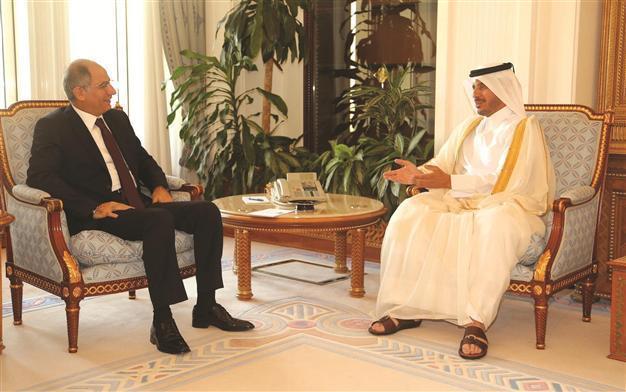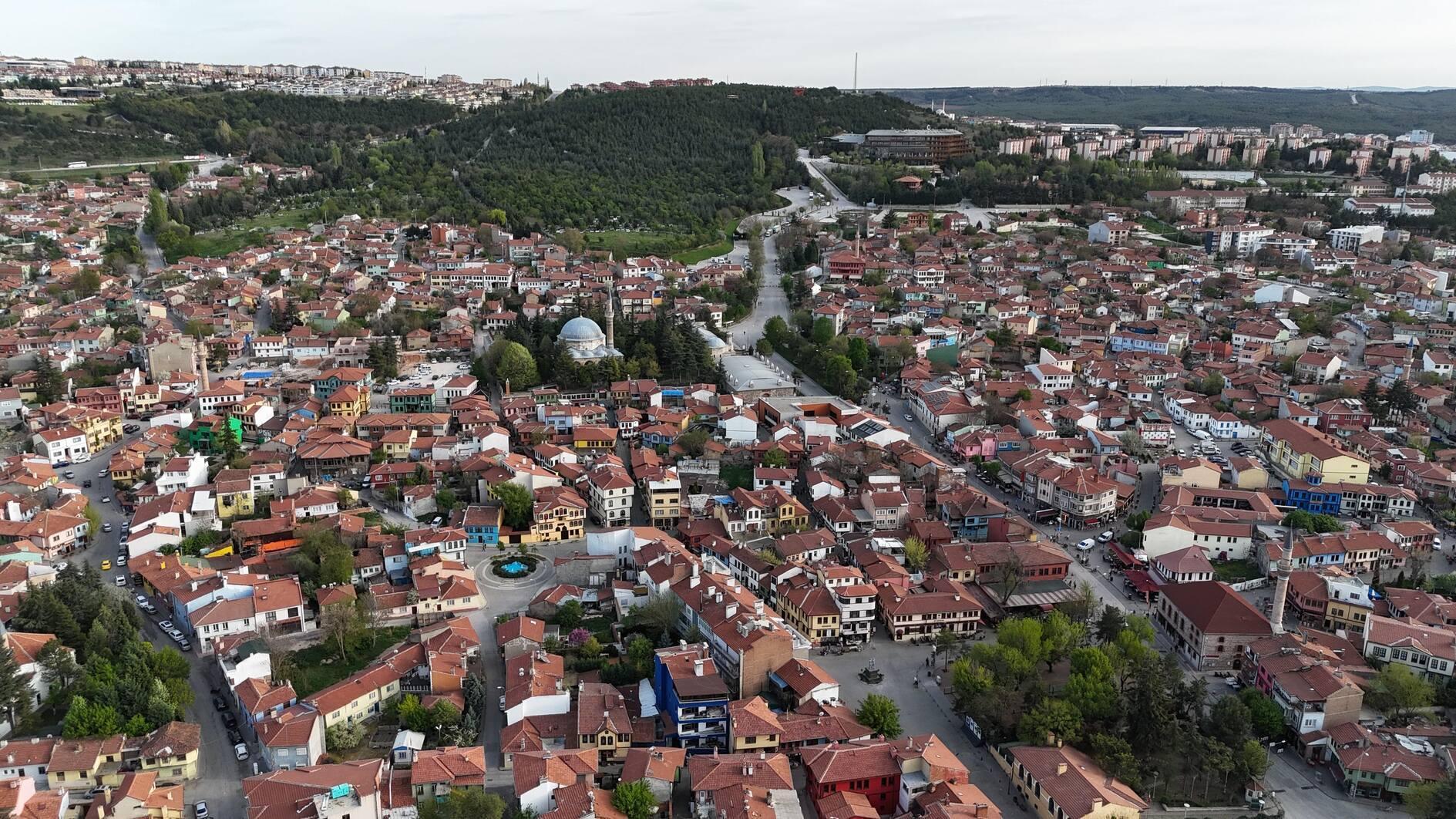Turkey in intense talks with Qatar over regional turmoil
Sevil Erkuş ANKARA

Turkish Interior Minister Efkan Ala meets with Qatari Prime Minister Sheikh Abdullah bin Nasser bin Khalifa al-Thani in Doha. AA Photo
Qatar and Turkey are engaging in intense talks amid critical developments in the region regarding the Islamic State of Iraq and the Levant (ISIL), with both countries part of the U.S.-led coalition against the group.Turkish Interior Minister Efkan Ala met with Qatari Emir Sheikh Tamim bin Hamad al-Thani and Qatari Prime Minister Sheikh Abdullah bin Nasser bin Khalifa al-Thani in Doha OCt. 22.
“Issues of security cooperation between the two countries and enhancing coordination between ministries” were discussed at the meeting, Anadolu Agency quoted diplomatic sources as saying, speaking on condition of anonymity.
The visit comes after President Recep Tayyip Erdoğan met Qatari Defense Minister Hamad Bin Ali al-Attiyah in Turkey on Oct. 20. Al-Attiyah also met with Gen. Necdet Özel, the head of Turkey’s armed forces.
As al-Attiyah was having talks in Ankara, Turkish Gendarmerie Forces Commander Gen. Abdullah Atay met with the Qatari prime minister in Doha on Oct. 20.
The two countries are on the same page on a number of international issues, such as the Syrian crises and recent political developments in Egypt, Libya and Jordan
Turkey and Qatar have been vocal supporters of the Syrian opposition and have been heavily engaged in efforts to coordinate the fragmented Sunni-majority Syrian rebels. The two states contributed jointly to the formation of the Syrian opposition’s civilian wing, the Syrian National Council, and its military wing, the Free Syrian Army (FSA).
Both countries have also been criticized for supporting the al-Nusra Front, the majority of whose militants later joined the ranks of ISIL.
The Qatar-Turkey line has occasionally deviated from the U.S.-Saudi approach in restructuring the opposition like the Syrian National Coalition and FSA into the Higher Military Council.
Meanwhile, Turkey has been reluctant to take a decisive military role in the anti-ISIL collation led by the U.S., while Qatar is similarly hesitant to conduct airstrikes against ISIL militants, merely providing air surveillance. As part of the coalition’s efforts, Turkey has agreed to train Syrian rebels within its territory.
Known as strong supporters of the Muslim Brotherhood movement in the region, Qatar and Turkey have each given sanctuary to Egyptian members of the Brotherhood after they were ousted from power in 2013.
The two countries’ support for the Muslim Brotherhood has strained their ties with Saudi Arabia and the United Arab Emirates.
















